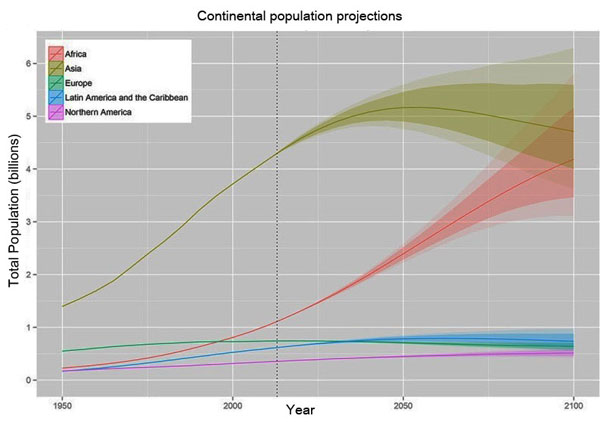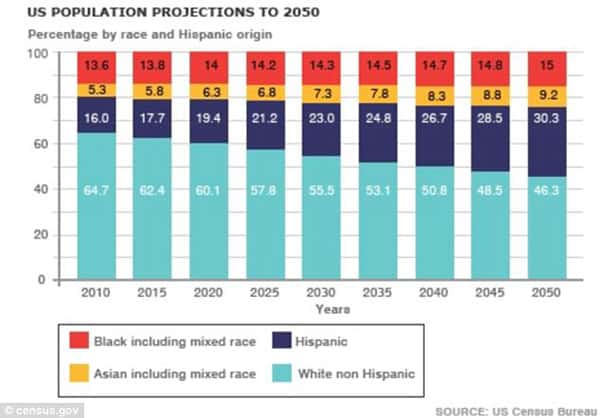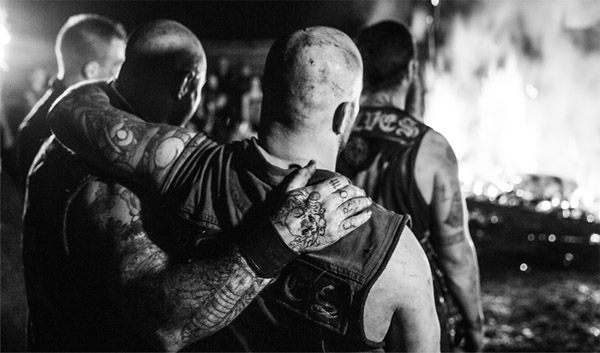Why I Am (Among Other Things) a ‘White Nationalist’
Henry Wolff, American Renaissance, June 1, 2017
Tribalist and masculinist Jack Donovan has written a thoughtful critique of white nationalism and the white nationalist movement called “Why I Am Not a White Nationalist.” He is a fellow traveler of the movement — he’s spoken at American Renaissance, Counter-Currents, and National Policy Institute events — so he can’t be accused of ignorance. Indeed, many of his criticisms are on the mark. Some, though, are aimed at only a fringe of the movement, while others fail to consider the existential plight our race faces.
Mr. Donovan criticizes movement members as well as their political ideology. I’ll begin with the first.
White nationalists, according to Mr. Donovan, are second perhaps only to SJWs in their tendency to infighting; backstabbing, gossiping, and power jockeying are rampant. Visits to many movement websites and Twitter feeds offer evidence for his claim.
Squabbles over minor ideological differences turn into publicly-aired flame wars, while personal disputes form rifts between movement organs. In time, things usually return to the status quo ante, but somehow this realization doesn’t prevent further flare-ups. You’d think the enormity of our task would force us to band together, but often we break ranks.
Still, infighting is not unique to white nationalism. History offers many examples of once-fringe political movements achieving success despite power struggles waged with much worse than underhanded tweets. When position is at stake, whether in companies, governments, or the PTA, there will be infighting. We’d do well, though, to take Mr. Donovan’s critique to heart and be comradely wherever possible.
Mr. Donovan also criticizes those he calls “race fetishists:” people who take inordinate pride in their race, while spending “countless hours obsessing over who is to blame (aside from their white parents) for the fact that they have nothing else going for them.” Such people do exist, but they’re by no means characteristic of the Alt-Right.
Mr. Donovan notes that at white nationalist events he’s met “hundreds of bright, courageous young men who have legitimate concerns about their own futures and the futures of the children they hope to have.” There is perhaps a total of only a thousand young men who attend Alt-Right events. If Mr. Donovan has met hundreds of good ones, why does he think losers define the movement? Mr. Donovan also has kind words for Richard Spencer, Jared Taylor, and Greg Johnson. Why doesn’t Mr. Donovan think they define it?
But even if the white nationalist movement was made up mostly of infighting losers, if its ends are worthy, this is an argument only for more well-adjusted people to get involved. And its ends are not only worthy, they’re necessary, especially for the sort of society Mr. Donovan envisions.
At the 2014 American Renaissance Conference, Mr. Donovan spoke about the threat global capitalism poses to genuine identity. Instead of a people grounded in heritage, culture, and place, Americans have become rootless shoppers, identifying only with trends in consumer and entertainment culture. Against this, Mr. Donovan proposes tribalism — forming small, tightly-knit groups of us that are unified in values and beliefs. His book Becoming a Barbarian is a guide to doing this. But in focusing on one problem, Mr. Donovan has ignored others:


Because of these trends, the sort of tribe-building Mr. Donovan proposes will become less and less possible. As Mr. Donovan acknowledges, “race is more than ‘skin color’ ” — he notes that he shares a “genetic and cultural heritage with white people.” Race may not be sufficient for the sort of communities Mr. Donovan wants, but it is necessary, and if current migration trends continue while the white population stagnates and the non-white population explodes, whites can expect to be overrun not just in America but also in Europe.
Mr. Donovan claims that if a white ethnostate were established in North America, whites would instantly be at each other’s throats over religious differences. This may be true, but whites have had such conflicts for centuries, and the result has not been civilizational suicide. Consider, however, a future of non-white domination — and make no mistake, that is whites’ fate unless they act to secure their lands demographically. History has many examples of the slaughter or enslavement of whites. Whites in Rhodesia and South Africa abandoned political autonomy and now face shocking rates of rape and murder, and ultimate dispossession. Small, tribalist groups would be helpless in the face of unified occupiers.
Even if the descent into savagery can be avoided, whites will face a bleak future as a minority. Mr. Donovan wants the government “to stay off my goddamned lawn and out of my fucking business.” There will be no such liberty in a non-white America. Taxes will soar. Gun rights will vanish. First Amendment protections will be a memory (some of Mr. Donovan’s writing may be deemed criminal). Groups based on exclusion may be outlawed entirely. Whites will be ruled by people with deep historical grudges, and nothing will prevent them from making whites miserable.
Given these prospects, religious discord in a white ethnostate is well worth risking. If whites ever succeed in establishing such a state, it will hopefully reflect a commitment to racial nationalism strong enough to unite different factions.
If a white ethnostate in North America is desirable (despite his objections, Mr. Donovan thinks it’s “not a terrible idea”), is it plausible? Mr. Donovan notes that he supports the efforts of German Identitarians because, unlike Americans, they have a common culture, language, and history. “Race alone isn’t enough to unite a people,” Mr. Donovan says, and white Americans share too little in common to identify with much else. In conditions of duress — in prisons, for example — race can be a sufficient unifier. In times of security and abundance, though, Mr. Donovan may be right. But white nationalism — especially in its current form — is about more than just biological race.
Previously, Mr. Donovan had written only one essay about race. Nevertheless, he’s spoken at AmRen and NPI conferences because, as he notes, his “criticisms of American society and the direction of Western culture generally have overlapped, and continue to overlap, with criticisms made by writers in the Alternative Right and White Nationalist communities.” Indeed, Mr. Donovan was the editor of the masculinity sub-section of the original AlternativeRight.com website.
White nationalists today clearly value Mr. Donovan’s perspectives on topics not directly related to race. There’s probably no other group that values them more. That’s because we recognize deficiencies in white American culture apart from our demographic vulnerability. We recognize the need to “forge a new people.” But that can be done only from our genetic substrate. No one else can be us, and if we are to have a future defined by the “small is beautiful” ethos Mr. Donovan prefers, it will be secure only if our people are secure.
Politics is not for everyone, nor should it be. Some people’s efforts are best spent locally, building healthy families and communities. But there’s no question that some people will have to work to secure a future for whites in America and Europe — and those people can be called white nationalists, even if that’s only part of who they are. If Mr. Donovan’s essay was instead “Why I Am Not a White Nationalist (But Some Congenial Winners Better Be),” there’s little with which I’d disagree.
And I’m not sure with how much of this reply Mr. Donovan will disagree. Perhaps he believes American white nationalism is necessary, but not sufficient — in which case our disagreement is one of emphasis. In any case, there’s much American white nationalists can learn from Mr. Donovan. Members of local Alt-Right groups would do well to pick up both The Way of Men and Becoming a Barbarian.
Mr. Donovan closes his essay by saying he “just want[s] to hang out in the woods with my friends and build something beautiful.” White nationalists must build a future in which that’s possible for our descendants as well.

Jack Donovan, with members of his tribe. Photo by Peter Beste.















